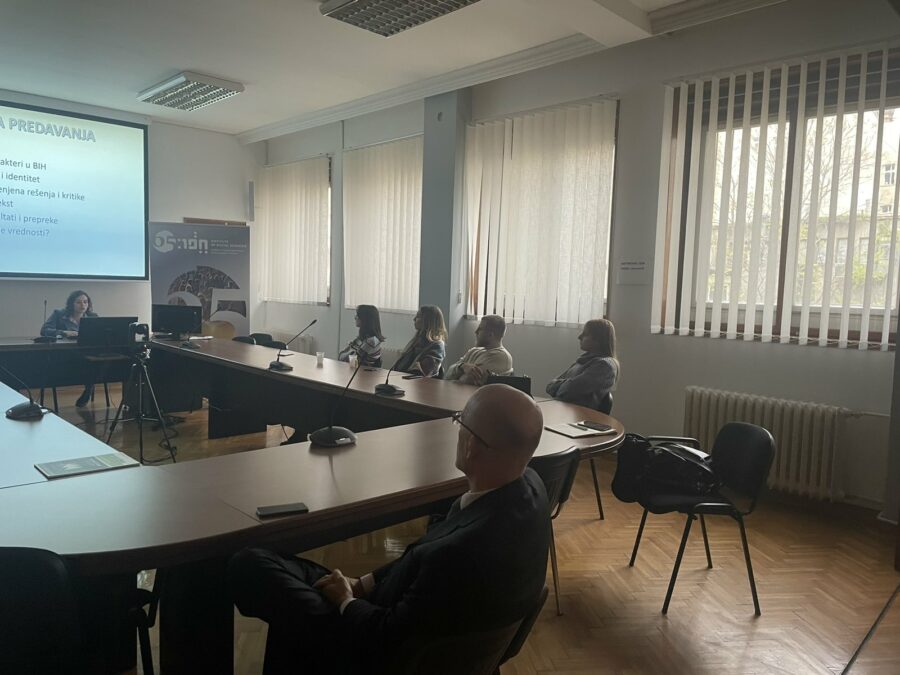As part of the cycle of lectures by new researchers at the Institute of Social Sciences, Danica Lazović, a Researcher Trainee from the Centre for Politicological Research and Public Opinion, held a lecture on November 24, 2023 in the Great Hall of the Institute of Social Sciences on the topic „The role of religious actors in the peace-building process in postDayton Bosnia and
The lecture was devoted to the importance and role of religious actors in socio-political events, with an emphasis on the peace-building process, with the aim of drawing attention to the importance of the participation of these actors in the peace-building process. Since the conflict in Bosnia and Herzegovina in the period 1992-1995. had religious characteristics, during the lecture it was pointed out that a solution for coexistence and peaceful coexistence cannot be found if the actions of religious actors are not taken into account. In addition, the aim of the lecture is to present religion in social and political life from a different perspective, and to show, in contrast to the established image of religion as a cause and accomplice in conflicts, those dimensions of religion that carry universal and shared ideas about peace, coexistence and respect.
During the lecture, the relationship of social groups in Bosnia and Herzegovina towards religion and religious actors was discussed, with special reference to the participation of religious actors in the process of peace building, achieved results and obstacles. A special part of the lecture was devoted to the explanation of the historical and political context in which the peace building process takes place, which is very specific in the case of Bosnia and Herzegovina.
The identities of the three constitutive peoples – Serbs, Bosnians and Croats are largely determined by religious components, which testifies to the impossibility of separating the religion and religious affiliation of those peoples from important social and political processes such as peace building. Also, the ways in which religious education is carried out in Bosnia and Herzegovina were considered, with the aim of identifying the content found in school textbooks and defining the relationship of religious communities towards the “Other”.
At the end of the lecture, it was pointed out that the process of building peace in Bosnia and Herzegovina from a religious perspective is very important not only for the territory of Bosnia and Herzegovina, but also for the surrounding countries, and therefore also for the Republic of Serbia, since the success of this process can affect the stability and the security of the entire Western Balkan region. The additional importance of the research is reflected in the fact that the role of religion in secular societies is often overlooked and neglected, regardless of its obvious impact on conflicts and the great transforming potential that religion can have in the process of stabilizing post-conflict multi-ethnic societies.

